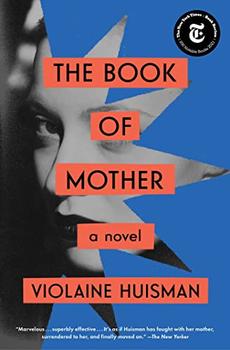Summary | Excerpt | Reviews | Beyond the Book | Readalikes | Genres & Themes | Author Bio

A Novel
by Violaine Huisman
But you promised me! Before the hospital, that's how we would have chided Maman if she tried to get out of finishing a story she'd started telling us a few days earlier. There would be serious consequences if Maman didn't finish the story tomorrow! It was the game of a child who mimics the authority of the parent, because the parent in question, having broken her word, finds her status temporarily diminished; after the hospital, we didn't play that game anymore. We were no longer certain of the rules, we would no longer play around with our mother's place in our lives. Maman had collapsed, was languishing on a corner of the couch, a defeated mess; we saw her struggling to get out of bed, or limply pretending to have dinner, or passed out in the hallway. Very early on, without having taken a single first aid course, we learned how to revive her. We knew a few simple techniques that she herself had taught us: have her sniff some vinegar, wipe her face with a damp washcloth, slap her, lift her eyelids, shout her name, shout it louder, ask if she can hear us, and when she wakes, ask if she can understand us, ask what day it is—no, too difficult—ask if she knows who we are. Maman, do you recognize me? Say my name! Who am I? You're my daughter, you're my darling daughters. What happened to me? You fainted, Maman. It'll be okay, don't worry, it'll be okay. When we couldn't manage to wake her, we'd call the fire department; the firemen, with their impressive uniforms and their EMT kit, always arrived very quickly. They'd put an oxygen mask on her, and watching her regain consciousness, we ourselves began to breathe again, we exhaled a deep sigh, midway between relief and exasperation. Maman bawled us out for having called the fire department for no reason, it was nothing at all, everything was fine, look, everything's fine! She'd give us a dirty look and, with a knowing air, explain to them that she'd stupidly skipped lunch, her blood pressure had just dropped a little, it was nothing, really, no reason at all to bother them. She'd gather herself up and adopt a serious look, the one she used for officials or our teachers, chin up, radiating maternal authority. Girls, don't you have homework to do? Come on, come on, get to work! But if the firemen insisted, as a precaution, on taking her to the hospital, Maman would start to scream: Not the hospital! Don't take me back to the hospital! I don't want to go to the hospital! No, not the hospital! Then my sister and I would say calmly to the worried firemen, Please, leave her be. She doesn't want to go to the hospital. The question that inevitably arose—what would become of us if they took Maman away?——always resolved things in her favor. Is there another adult living here? these great big guys would ask us gently. Well, no. There was just us. Maman and the two of us, now thirteen and eleven years old.
Our apartment building was across the street from the National Institute for Blind Youth, at number 1, rue Necker—right by the children's hospital where Maman had spent the longest and most painful years of her childhood. She refused to set foot there, not even if we had to have our tonsils out or our appendix removed; she preferred to go across Paris, she would have gone to the other side of the world, rather than risk reviving the traumas that haunted those corridors. Yet she had chosen to live near this memory palace, a monument that loomed so large in her personal mythology. It towered over us like a ghost when we left our apartment house; she stumbled in its shadow. It was a sign of the inescapability of her past, both the past she had lived and the past she had invented. That she had chosen to live near the edifice of this past, just next door to it, was an indication of how much she needed to make visible, to make material, a cause, an origin story, for the disaster that was her life.
And tell the story of her life she did, continuously, ad nauseam, an unbearable monologue. She was like Winnie in Beckett's Happy Days, hectoring us, calling upon us as witnesses, her two darling, adored daughters, whom she loved for all eternity. During the years that followed her hospitalization at Sainte-Anne, she worked day and night on the writing of a story she called Saxifrage, for the flower that grows in rock. It was published by Éditions Séguier. Or rather, it was published at the author's own expense, but with her incomparable powers of persuasion, she succeeded in convincing the publishing house to print it for her. This text demanded more than three years of indefatigable labor; she wanted to do everything herself, including the layout, which involved little bits of paper cut out and pasted onto sheets that she folded into a booklet. She presented her autobiography in the form of calligrams made of rhyming expressions she sometimes made up, all ending with -ing: Babbling/Floundering// Deporting/Hospitaling//Abandoning/Dead-bed-emptying//Trauma-ing ...
Excerpted from The Book of Mother by Violaine Huisman. Copyright © 2021 by Violaine Huisman. Reprinted with permission of Scribner, a Division of Simon & Schuster, Inc.
Your guide toexceptional books
BookBrowse seeks out and recommends the best in contemporary fiction and nonfiction—books that not only engage and entertain but also deepen our understanding of ourselves and the world around us.